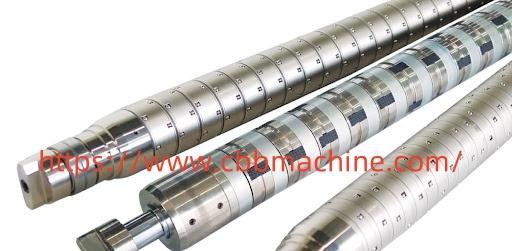Cbbmachine Guide To Maintaining Differential Air Shaft For Longevity

The Differential Air Shaft plays a vital role in modern manufacturing, particularly in processes involving rolls of materials like paper, film, foil, and textiles. Its main function is to ensure uniform tension across the roll, preventing wrinkles, slippage, or uneven winding that can reduce material quality and increase waste.
In high-speed production environments, maintaining consistent tension is crucial. Uneven tension can cause defects in the finished product, damage downstream machinery, or require frequent stoppages to adjust the rolls manually. Using an advanced air shaft allows operators to achieve smooth and stable operation without constant intervention, improving both efficiency and output quality.
Durability and precision are key advantages. High-grade materials and accurate engineering design allow these shafts to handle varying loads and speeds reliably. Industries such as printing, laminating, and packaging benefit from reduced maintenance and prolonged service life, which ultimately lowers operational costs.
Safety is another significant benefit. Properly controlled tension prevents sudden roll movement or slippage, reducing the risk of workplace accidents. Additionally, consistent tension protects other equipment along the production line, ensuring longevity and reliable operation.
Choosing the correct air shaft requires careful consideration of material type, roll diameter, and line speed. These factors determine the ideal pressure distribution and ensure optimal performance. By integrating a well-designed air shaft into production lines, manufacturers can reduce scrap, save energy, and maintain high product standards.
Routine maintenance is essential to keep the system functioning efficiently. Checking for wear, ensuring proper lubrication, and monitoring air pressure levels helps prevent unexpected downtime and extends the shaft's operational lifespan. These measures contribute to stable production processes and minimize losses due to material waste or machine interruptions.
Incorporating advanced air shaft technology supports more sustainable manufacturing. Reduced material waste, less energy consumption, and longer equipment life all contribute to environmentally responsible production practices. Furthermore, automation and precise tension control help operators focus on other critical tasks, optimizing the overall manufacturing workflow.
The implementation of these systems reflects the growing importance of technology in industrial operations. Companies that invest in quality air shafts experience higher consistency, efficiency, and profitability while maintaining safety and environmental standards.
For more details, visit https://www.cbbmachine.com/news/industry-news/differential-air-shafts-key-components-applications-benefits-and-more.html
- Art
- Causes
- Crafts
- Dance
- Drinks
- Film
- Fitness
- Food
- Games
- Gardening
- Health
- Home
- Literature
- Music
- Networking
- Other
- Party
- Religion
- Shopping
- Sports
- Theater
- Wellness
